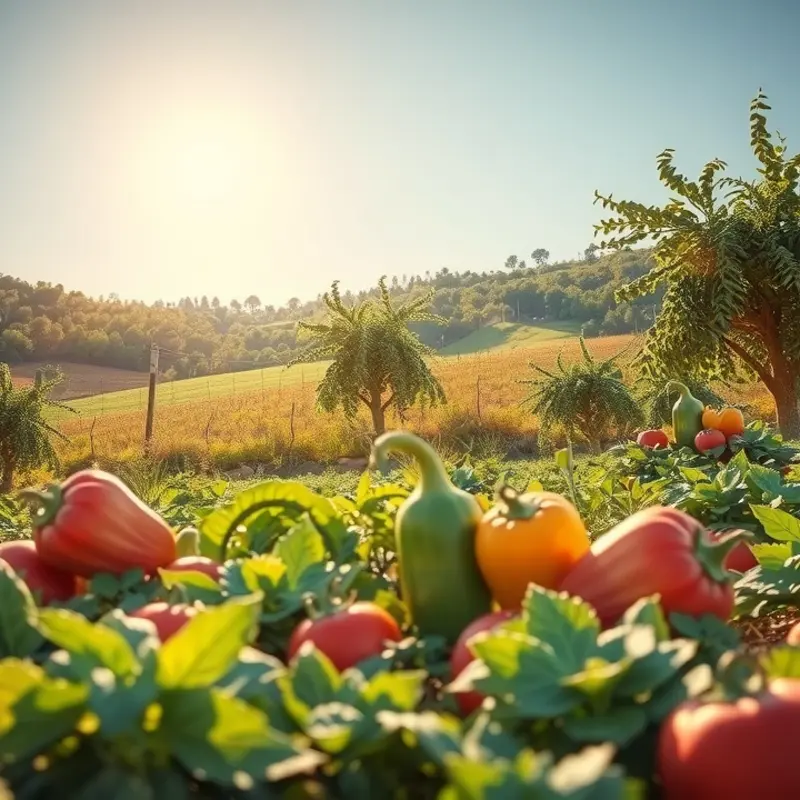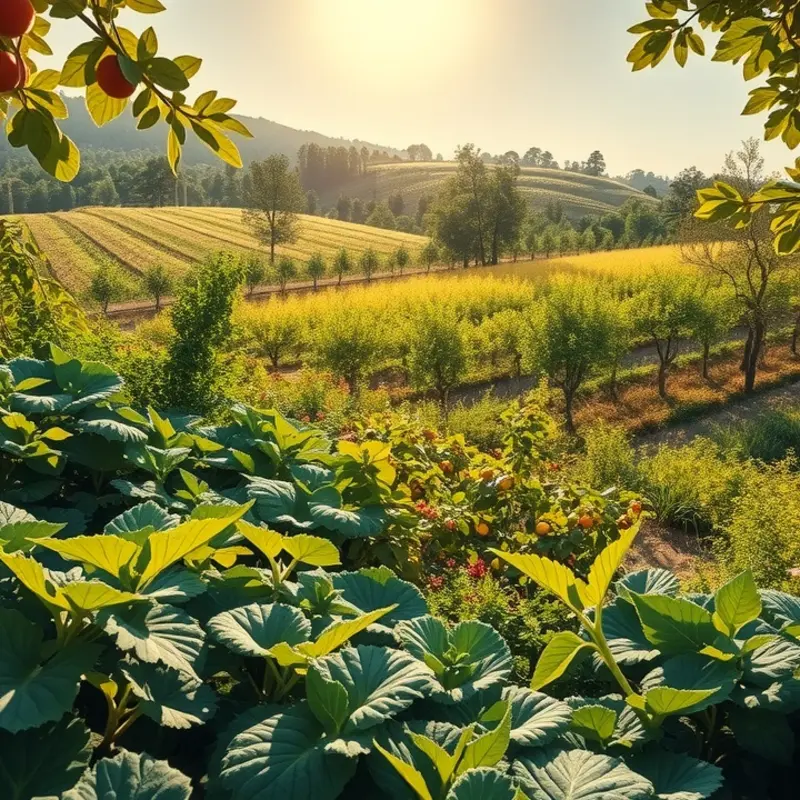Embracing eco-friendly meal planning is a powerful way to align your food choices with your environmental values. By consciously selecting seasonal, local, and plant-based ingredients, you can reduce your carbon footprint and support sustainable agriculture. This guide offers practical steps for environmentally-conscious individuals eager to incorporate eco-friendly practices into their meal preparation routines. Together, let’s explore how to create delicious, earth-friendly meals that sustain both our bodies and our planet.
Finding Local Bounty: Embracing Seasonal Ingredients

Choosing to embrace seasonal and local ingredients is more than just a culinary preference; it’s a meaningful way to nurture both our health and the environment. Seasonal produce is often fresher, more nutritious, and richer in flavor. When you prioritize these ingredients, you support sustainable farming practices that reduce the environmental impact of transportation and extensive storage.
Connecting with local farmers and markets can be a rewarding endeavor. Establishing these relationships allows you to understand the farming methods used and ensures you’re buying produce that’s free from excessive pesticides and chemicals. Visiting a local farmer’s market becomes a vibrant experience where you can learn directly about the best produce each season has to offer.
Sourcing locally contributes significantly to reducing your carbon footprint. When ingredients travel shorter distances, they need less fuel and resources for transport. Furthermore, because local produce often avoids energy-intensive cold storage, it arrives fresher, typically boasting higher nutritional content. Creating dishes with these ingredients allows flavors to shine, enhancing culinary satisfaction.
Supporting local agriculture also fosters community ties. When you purchase locally, you’re investing in regional economies and supporting jobs in your area. This framework creates a ripple effect of sustainability as profits return to communities, encouraging more farmers to adopt and maintain eco-friendly methods.
Incorporating seasonal ingredients into your meal planning requires some understanding of what grows when. For a helpful guide on incorporating eco-smart storage in your kitchen to preserve your local bounty longer, you can check out sustainable eco-friendly kitchen storage. This could include learning which vegetables are available in spring or which fruits flourish in autumn. Utilizing this knowledge can lead to exciting culinary adventures.
Imagine a late summer dinner using juicy, locally-grown tomatoes and fragrant basil. These flavors provide a richness only achieved by letting ingredients speak for themselves without travel-related alterations. Cooking seasonally can introduce you to new foods, expanding your culinary horizon in unexpected and delightful ways.
If you’re new to the idea of local sourcing or struggling to find a nearby farmer’s market, consider exploring community-supported agriculture (CSA) programs. These options allow you to receive a share of seasonal produce from a local farm. You directly contribute to the farm’s sustainability and receive fresh, often organic, produce in exchange.
Ultimately, embracing local and seasonal ingredients is about reconciling our food choices with a broader environmental conscience. By choosing these options, you contribute to a system that values seasonal rhythms and reduces agricultural emissions. Whether you’re savoring a fresh peach in summer or roasting root vegetables in winter, you’re making a conscious decision that benefits both your body and the Earth.
Creative Meal Prep: Eco-Friendly Techniques for Sustainable Eating

Integrating eco-friendly techniques into your meal prep routine can significantly reduce your environmental impact. One crucial aspect is portion control. Preparing the right amount of food reduces waste and ensures you’re using resources wisely. Start by planning your meals ahead and using a food scale to measure ingredients accurately. By understanding portion sizes, you not only prevent wastage but also promote healthier eating habits.
Another effective method is efficient storage. Proper storage extends the life of your produce and leftovers, reducing the frequency of grocery trips. Glass containers and reusable silicone bags are excellent choices for keeping food fresh while avoiding plastic waste. Keep your refrigerator organized to make sure older ingredients are used before newer ones, further reducing spoilage.
Composting is another practical tip to embrace. Instead of throwing away food scraps, start a compost bin. This decomposes organic waste into nutrient-rich soil, perfect for gardening. Composting reduces landfill contributions and promotes a cycle of sustainability.
Embracing a plant-based diet can drastically cut your carbon footprint. Plant-based foods generally require fewer resources, and this dietary approach supports both environmental and personal health. Legumes, grains, nuts, and a variety of vegetables are not only less resource-intensive but also expand culinary creativity with new textures and flavors.
Explore innovative recipes focused on wholesome, sustainable ingredients. For example, try a chickpea salad made with fresh herbs and lemon, or a hearty lentil stew. These dishes incorporate diverse flavors while emphasizing sustainability. To enhance your culinary repertoire, consider exploring flavor boosters without excess salt, which can amplify dishes in a health-conscious manner.
Utilizing efficient cooking methods, like batch cooking, is another strategy for eco-friendly meal prep. Cooking in bulk saves time and energy, ensuring you have nutritious meals ready throughout the week. Additionally, it minimizes kitchen appliance usage, lowering your energy consumption.
By integrating these techniques, you complement the practices of mindful eating and sustainable living. Harness the power of simple, conscious choices in your kitchen and contribute to a greener future while delighting in the diverse, nutritious meals you’ll create.
Final words
Eco-friendly meal planning is not just about the food on your plate; it’s about making conscious decisions that positively impact our planet. By embracing local, seasonal ingredients and incorporating sustainable practices into your preparation routines, you contribute to a healthier environment and develop a deeper relationship with your food. Small, consistent changes lead to a big difference, and your choices can inspire others. So, dive into eco-friendly meal planning and enjoy the delicious, vibrant fruits of your labor while making a meaningful difference in the world around you.








